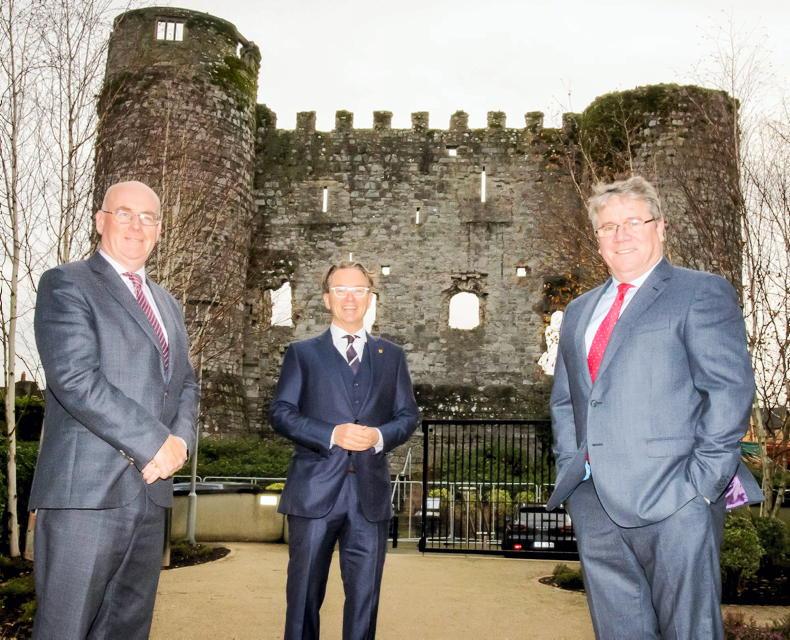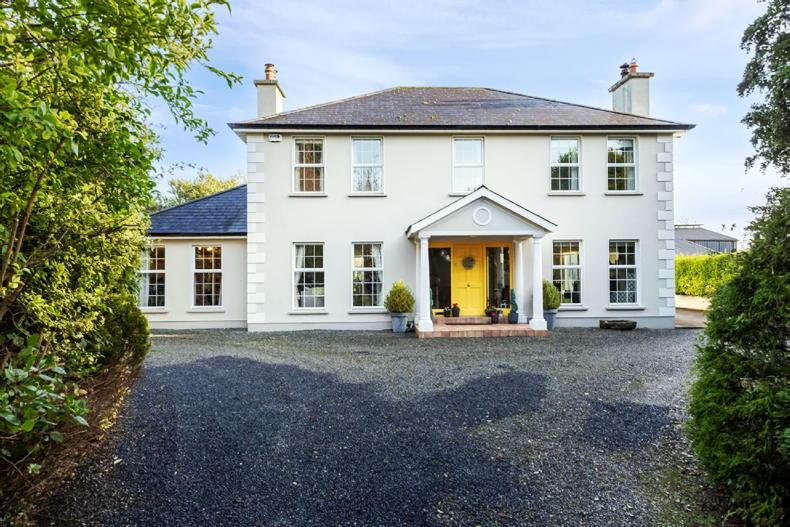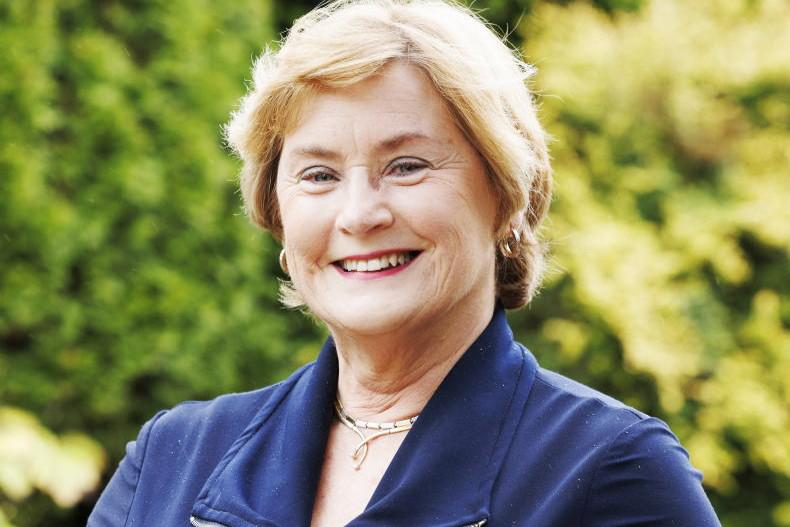Your own front door, that comfortable armchair that has moulded around you, the cosiness of your own bed – it’s not surprising that, when surveyed, 93% of people would like to stay in their own home for as long as possible as they get older.
However, the reality is that often we need some help in the home.
Since the start of 2020, Irish company Halocare have been using technology to do just that.
Time out
Founder David Walsh explains: “We know that we all go on a journey as we age and on that journey there is definitely a window where technology can play a huge role.
“Of course, there may come a time when technology may not be enough and the person needs to be supported with family care or in a residential setting. But our focus is to use technology to elongate that window where someone can have a really high quality of life in their own home if that’s what they decide.”
When it comes to technology, David and his business partner Niall Kelly certainly have their fair share of experience. While some readers might be familiar with David from his years working in Keenan, he and Niall are best known as the founding members of Netwatch – once described in the Irish Times as the biggest thing to come out of Carlow since Saoirse Ronan.
I had great plans to travel the world with my wife but when COVID hit we knew the time was right to put our idea for Halocare into action
The company, which installed high-tech smart security cameras in business premises and employed 200 people, was sold to an American company in 2018 in a multi-million dollar deal.
It was a two-year handover and the duo could have happily retired but, instead, the plan was to take a year off before working on their next project. David says: “I had great plans to travel the world with my wife but when COVID hit we knew the time was right to put our idea for Halocare into action.
Action plan
“COVID has had such a negative impact on the elderly and the most vulnerable in our society and there was a paradigm shift from caring at home rather than in a nursing home. However, the infrastructure just wasn’t there to make that happen on a meaningful scale, which is where we came in.”
The whole concept of Halocare is about detecting exceptions in the normal everyday habits of a person in their home
Technology in the home isn’t an entirely new idea. Smart technology is now becoming mainstream and for elderly people there are wearable devices with a panic button if something goes wrong, but the idea for Halocare was to bring it together in a more holistic way.
David explains: “The whole concept of Halocare is about detecting exceptions in the normal everyday habits of a person in their home.

David Walsh (left) and Niall Kelly (centre) co-founders of HaloCare. Here with Dr Johnny Walker.
“There are no cameras in the home. The independence, dignity and privacy of the person is so important. Instead, there is a device fitted in the main rooms of a home and over the course of a few weeks they learn to detect the normal patterns and behaviours of the individual.
“It learns their natural posture, how many steps they take, how fast they walk, how long they sit on the couch, whether they stumble when they get up from the couch and it reports to us outliers. So if a person sits on the couch for two hours a day, that’s fine, but then if we detect that they are sitting there for three or four hours, it might be nothing or it might be a sign of them getting ill.”
If there is an extreme event and someone falls in the room and they hit their head, our technology will recognise that they have left the scene but they haven’t gone out the front door
On another level, if a person has a fall and they aren’t wearing a panic button or they can’t reach their phone, they can shout out.
“Our technology is voice activated so it recognises distress and can open up a communication pathway to a care staff, so they can have a discussion and plan what will happen next.
“If there is an extreme event and someone falls in the room and they hit their head, our technology will recognise that they have left the scene but they haven’t gone out the front door. They will open up an emergency channel to our nurses and care staff where we follow protocol and the ambulance can be contacted.
“The benefit to an elderly person is they can live a normal life – the technology is in the background, it’s passive, it’s unobtrusive, so once it’s installed, they just live their normal life and if something out of the norm happens we can take corrective action.”
Safety first
Technology these days is smarter than ever and safety in the home is also an important feature.
“Our technology will alert us if there is a smoke or carbon monoxide emergency, and if there is a flood leak. This is actually turning out to be an important one because some of our clients have early stages of forgetfulness.
“For example, recently, we had a client who really benefitted from this feature. She put dishes in the sink, turned on the tap to soak them and then something came on the TV which distracted her and she forgot to turn off the tap. As soon as the water hit the floor, our flood detection technology recognised it. We rang this lady and asked her, ‘Did you forget to turn off your tap?’ ‘Oh my god, I did thank you,’ she said.
“She hung up the phone, turned off the tap and saved the house being flooded.”
Keeping in touch
Because of COVID-19, loneliness and isolation has been a real issue for older people but, again, it’s all about adapting technology to suit people’s needs.
“We developed a tablet for our users which is age-friendly and very easy to use. It’s got just four buttons, one is to talk to our care team; another icon is a calendar so, for example, they can see when their home help is calling.
One of our customers gets the Irish Farmers Journal downloaded every Thursday
“We have found that photo sharing has been incredibly important for people to help stay connected with families when they have had to stay apart and they can also browse the internet.
“One of our customers gets the Irish Farmers Journal downloaded every Thursday. The difference between this tablet and a normal tablet is that it is very simple to use but, most importantly, it’s got a secure line so the only people who can contact the person on this device is our care team and the people that are on their family list. Therefore, the older person can’t be targeted by scammers.
It’s also great for the daily chat with a member of the care team who rings to check in.
“Originally, we had planned that transition year students would make these daily phone calls as part of their work experience. It would have benefits for the student and benefits for the older person, having a chat and connecting with someone from a different generation. It’s certainly an idea we plan to come back to after the pandemic.”
It’s a managed service with a monthly fee but you can tailor it depending on your needs
These guys certainly got the timing right in terms of the service and price wise, it ranges from €250 to €500 a month.
“It’s a managed service with a monthly fee but you can tailor it depending on your needs. The standard package is for a four-room house, the four main rooms that people live in but that can be expanded depending on the house. It brings a lot of peace of mind to people and their families.”
Read more
Consumer: environmental matters
Consumer-The A to G of New Appliance Labels
Your own front door, that comfortable armchair that has moulded around you, the cosiness of your own bed – it’s not surprising that, when surveyed, 93% of people would like to stay in their own home for as long as possible as they get older.
However, the reality is that often we need some help in the home.
Since the start of 2020, Irish company Halocare have been using technology to do just that.
Time out
Founder David Walsh explains: “We know that we all go on a journey as we age and on that journey there is definitely a window where technology can play a huge role.
“Of course, there may come a time when technology may not be enough and the person needs to be supported with family care or in a residential setting. But our focus is to use technology to elongate that window where someone can have a really high quality of life in their own home if that’s what they decide.”
When it comes to technology, David and his business partner Niall Kelly certainly have their fair share of experience. While some readers might be familiar with David from his years working in Keenan, he and Niall are best known as the founding members of Netwatch – once described in the Irish Times as the biggest thing to come out of Carlow since Saoirse Ronan.
I had great plans to travel the world with my wife but when COVID hit we knew the time was right to put our idea for Halocare into action
The company, which installed high-tech smart security cameras in business premises and employed 200 people, was sold to an American company in 2018 in a multi-million dollar deal.
It was a two-year handover and the duo could have happily retired but, instead, the plan was to take a year off before working on their next project. David says: “I had great plans to travel the world with my wife but when COVID hit we knew the time was right to put our idea for Halocare into action.
Action plan
“COVID has had such a negative impact on the elderly and the most vulnerable in our society and there was a paradigm shift from caring at home rather than in a nursing home. However, the infrastructure just wasn’t there to make that happen on a meaningful scale, which is where we came in.”
The whole concept of Halocare is about detecting exceptions in the normal everyday habits of a person in their home
Technology in the home isn’t an entirely new idea. Smart technology is now becoming mainstream and for elderly people there are wearable devices with a panic button if something goes wrong, but the idea for Halocare was to bring it together in a more holistic way.
David explains: “The whole concept of Halocare is about detecting exceptions in the normal everyday habits of a person in their home.

David Walsh (left) and Niall Kelly (centre) co-founders of HaloCare. Here with Dr Johnny Walker.
“There are no cameras in the home. The independence, dignity and privacy of the person is so important. Instead, there is a device fitted in the main rooms of a home and over the course of a few weeks they learn to detect the normal patterns and behaviours of the individual.
“It learns their natural posture, how many steps they take, how fast they walk, how long they sit on the couch, whether they stumble when they get up from the couch and it reports to us outliers. So if a person sits on the couch for two hours a day, that’s fine, but then if we detect that they are sitting there for three or four hours, it might be nothing or it might be a sign of them getting ill.”
If there is an extreme event and someone falls in the room and they hit their head, our technology will recognise that they have left the scene but they haven’t gone out the front door
On another level, if a person has a fall and they aren’t wearing a panic button or they can’t reach their phone, they can shout out.
“Our technology is voice activated so it recognises distress and can open up a communication pathway to a care staff, so they can have a discussion and plan what will happen next.
“If there is an extreme event and someone falls in the room and they hit their head, our technology will recognise that they have left the scene but they haven’t gone out the front door. They will open up an emergency channel to our nurses and care staff where we follow protocol and the ambulance can be contacted.
“The benefit to an elderly person is they can live a normal life – the technology is in the background, it’s passive, it’s unobtrusive, so once it’s installed, they just live their normal life and if something out of the norm happens we can take corrective action.”
Safety first
Technology these days is smarter than ever and safety in the home is also an important feature.
“Our technology will alert us if there is a smoke or carbon monoxide emergency, and if there is a flood leak. This is actually turning out to be an important one because some of our clients have early stages of forgetfulness.
“For example, recently, we had a client who really benefitted from this feature. She put dishes in the sink, turned on the tap to soak them and then something came on the TV which distracted her and she forgot to turn off the tap. As soon as the water hit the floor, our flood detection technology recognised it. We rang this lady and asked her, ‘Did you forget to turn off your tap?’ ‘Oh my god, I did thank you,’ she said.
“She hung up the phone, turned off the tap and saved the house being flooded.”
Keeping in touch
Because of COVID-19, loneliness and isolation has been a real issue for older people but, again, it’s all about adapting technology to suit people’s needs.
“We developed a tablet for our users which is age-friendly and very easy to use. It’s got just four buttons, one is to talk to our care team; another icon is a calendar so, for example, they can see when their home help is calling.
One of our customers gets the Irish Farmers Journal downloaded every Thursday
“We have found that photo sharing has been incredibly important for people to help stay connected with families when they have had to stay apart and they can also browse the internet.
“One of our customers gets the Irish Farmers Journal downloaded every Thursday. The difference between this tablet and a normal tablet is that it is very simple to use but, most importantly, it’s got a secure line so the only people who can contact the person on this device is our care team and the people that are on their family list. Therefore, the older person can’t be targeted by scammers.
It’s also great for the daily chat with a member of the care team who rings to check in.
“Originally, we had planned that transition year students would make these daily phone calls as part of their work experience. It would have benefits for the student and benefits for the older person, having a chat and connecting with someone from a different generation. It’s certainly an idea we plan to come back to after the pandemic.”
It’s a managed service with a monthly fee but you can tailor it depending on your needs
These guys certainly got the timing right in terms of the service and price wise, it ranges from €250 to €500 a month.
“It’s a managed service with a monthly fee but you can tailor it depending on your needs. The standard package is for a four-room house, the four main rooms that people live in but that can be expanded depending on the house. It brings a lot of peace of mind to people and their families.”
Read more
Consumer: environmental matters
Consumer-The A to G of New Appliance Labels










SHARING OPTIONS